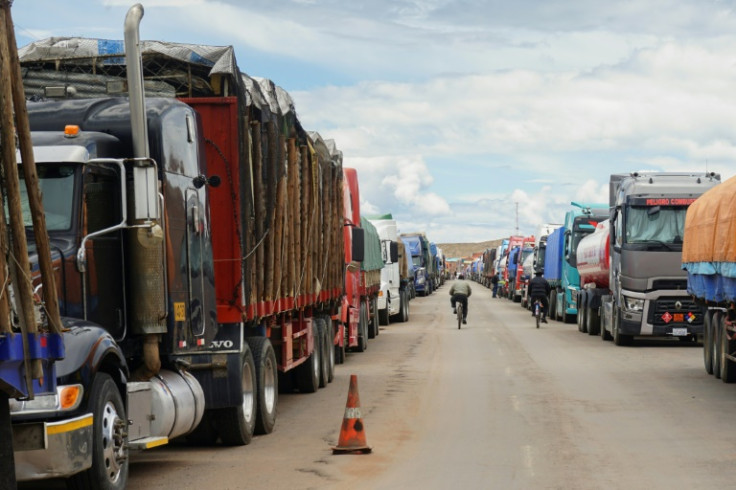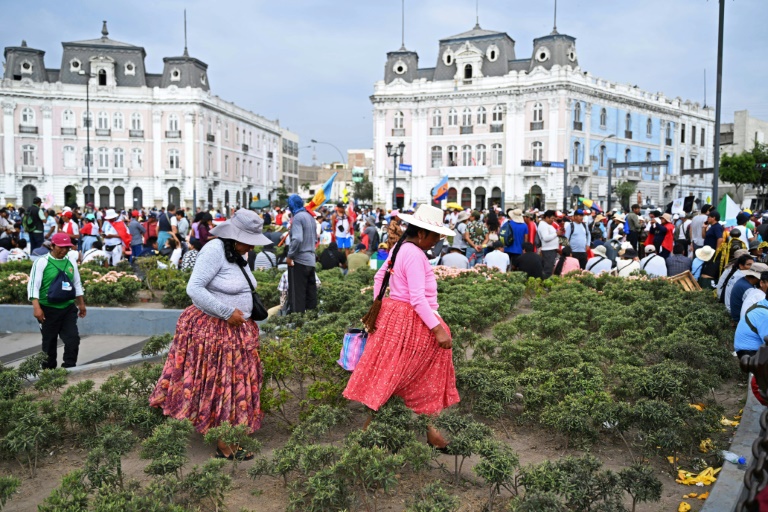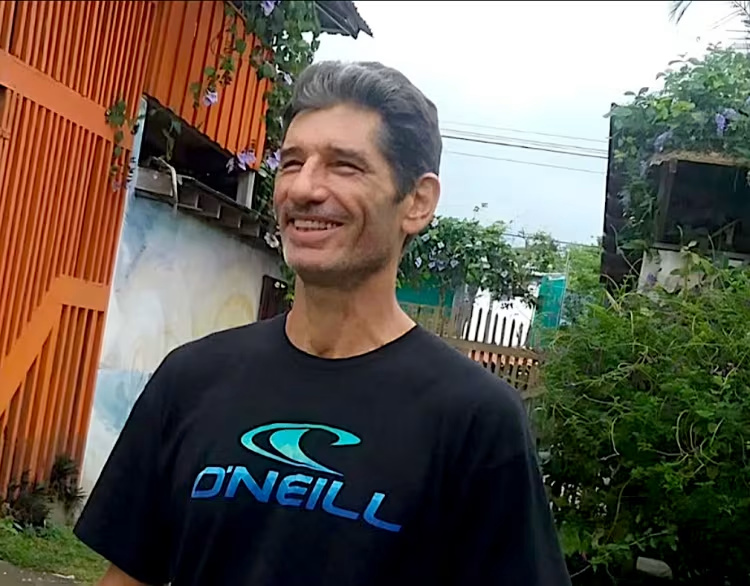AFP
Peru’s Congress on Thursday voted down another proposal to advance elections to this year, a day after a similar proposal aimed at quelling deadly nationwide unrest also failed.
In addition to moving elections up from April 2024 to July 2023, the proposal rejected Thursday included the calling of a referendum on forming a constitutional convention — another key demand of protesters.
The proposal by the Free Peru party was rejected with 75 votes against and only 48 in favor, with one abstention.
The vote Wednesday on a proposal to advance elections to October 2023, without the constitutional convention referendum, had been backed by President Dina Boluarte.
The president’s office said on Twitter it regretted the vote Wednesday and vowed to immediately present another bill to hold general elections this year.
Peru has been embroiled in a political crisis with near-daily demonstrations since December 7, when then-president Pedro Castillo was arrested after attempting to dissolve Congress and rule by decree.
In seven weeks of demonstrations, 48 people — including a police officer — have been killed in clashes between security forces and protesters, according to the human rights ombudsman’s office.
Roadblocks erected by protesters have caused shortages of food, fuel and other basic commodities in several regions of the Andean nation.
Demonstrators, who were out in the capital Lima again on Thursday, demand the dissolution of Congress, a new constitution, and the resignation of Boluarte, who as vice president took over with Castillo gone.
Jaime Quito, the leftist sponsor of the bill that failed Thursday, said after the vote that “Congress must close.”
“What will happen is that Dina Boluarte will have to resign,” he added.
In December, lawmakers moved elections, originally due in 2026, up to April 2024, but as protesters dug in their heels, Boluarte called for holding the vote this year instead.
The unrest is being propelled mainly by poor Indigenous Peruvians from southern areas of the country.
They perceived Castillo, who is also from that region and has Indigenous roots, as an ally in their fight against poverty, racism and inequality.
Before Wednesday’s vote, two previous bills to advance the election had also faltered in Congress.
Boluarte said that if it failed a third time, as it did Wednesday, she would propose a constitutional reform allowing a first voting round to be held in October and a runoff in December.
Her proposal will be reviewed by a congressional committee on Friday.
Boluarte’s government began to show additional cracks on Thursday, with the departure of Raul Molina, a chief advisor.
Molina blamed Boluarte for a lack of “substantive political gestures” as well as not establishing any clear suspects in the deaths of protesters during the crisis.
“Madam President, listen to our people, to the great majority who are asking for changes”, read Molina’s letter of resignation released Thursday by the press.
She declined to comment on the resignation.
Five ministers in Boluarte’s government have resigned since she came to power in December.

AFP







